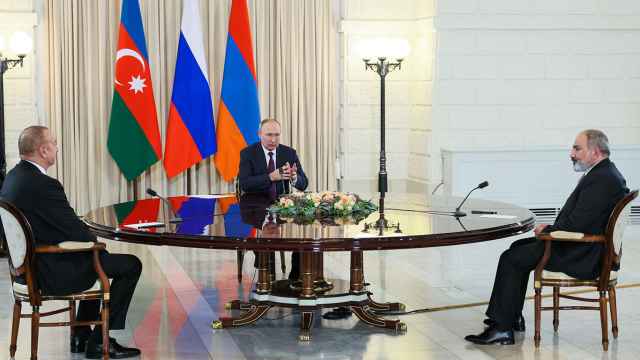Normally, you need a distinctive first name not to need a last name, but in this — as in everything that he did — Steve Jobs was different. He was always just “Steve.”
In the personal computing business — which moved from the bulky Apple II to the sleek and intelligent iPhone 4s, announced the day before Steve’s death — Steve was the only true showman of what is now one of the world’s biggest industries.
He inspired broad public enthusiasm for the quality of his products and his personal charisma. Others have become “business” leaders, but only Steve became someone known and admired by millions, including the Romanian waiter at the British Airways lounge where I am sitting now.
I first met Steve back in 1979 or 1980, at Ben Rosen’s Personal Computer Forum. For some reason, it was held at the Playboy Resort in Lake Geneva. Regis McKenna, Apple’s public relations agent for many years, set up the meeting.
As I recall, the three of us sipped Diet Cokes, served by a Playboy bunny. Even then, as a world traveler who had spent serious time in India, Steve had a better sense of the world outside educated, middle-class America than most techies.
I’ll always remember his impact at PC Forum, which I later bought and ran from 1982 to 2007. He came many times in the mid-1980s and 1990s. The rivalry between him and almost everyone in the industry was bitter. He and Apple were considered arrogant loners. They didn’t play nicely with others.
And, yes, he was occasionally rude to me as well, when I failed to earn his approval for one reason or another. That includes my last e-mail from him, in September 2010, where he called a particular app I had introduced to him “really crummy.”
Nonetheless, 30 or so years ago, a number of us gathered in a hotel suite to watch him being interviewed by television host Larry King. As he talked, compelling as ever, the mood in the room changed. He was no longer our competitor inside our market. He was one of us, outside in a bigger, alien world, explaining our immature little industry and products to a much broader public than we could ever reach — or influence — on our own.
Our small industry had lots of its own stars, but only Steve had the charm and eloquence to be a star to the outside world. We cheered as he explained — in eloquent, simple terms, speaking for all of us — the effect that personal computers could have on people’s lives.
On the business side, he built a unique company, despite his own period in exile from Apple while a series of missteps almost destroyed the organization that he had built. In a world where people genuflect to the creed of “open systems” — and sometimes actually practice it — Steve insisted on being closed in order to control and deliver a unified, coherent experience to consumers.
His obsession with detail was legendary.
Steve’s company reflects that singularity of focus. Apple still controls what apps you can buy, what content you can see and most other aspects of the products that it sells. Despite its range of products, Apple has a single design team and centralized management. The company has made only a few acquisitions over the years, most notably Siri, the source of much of the intelligence inside the newest iPhone. Apple’s goal has never been to amass market share, but rather to attract customers one by one through the singular appeal of its products.
But in the end, the point isn’t a battle over strategies. Openness is great and a strategy I normally applaud. No single vendor is likely to be the best, so openness allows a broad range of suppliers to compete and differentiate so the best can emerge. The closed strategy makes sense only if you are the best.
That is what Steve was.
Esther Dyson, CEO of EDventure Holdings, is an active investor in a variety of startups around the world. © Project Syndicate
A Message from The Moscow Times:
Dear readers,
We are facing unprecedented challenges. Russia's Prosecutor General's Office has designated The Moscow Times as an "undesirable" organization, criminalizing our work and putting our staff at risk of prosecution. This follows our earlier unjust labeling as a "foreign agent."
These actions are direct attempts to silence independent journalism in Russia. The authorities claim our work "discredits the decisions of the Russian leadership." We see things differently: we strive to provide accurate, unbiased reporting on Russia.
We, the journalists of The Moscow Times, refuse to be silenced. But to continue our work, we need your help.
Your support, no matter how small, makes a world of difference. If you can, please support us monthly starting from just $2. It's quick to set up, and every contribution makes a significant impact.
By supporting The Moscow Times, you're defending open, independent journalism in the face of repression. Thank you for standing with us.
Remind me later.





